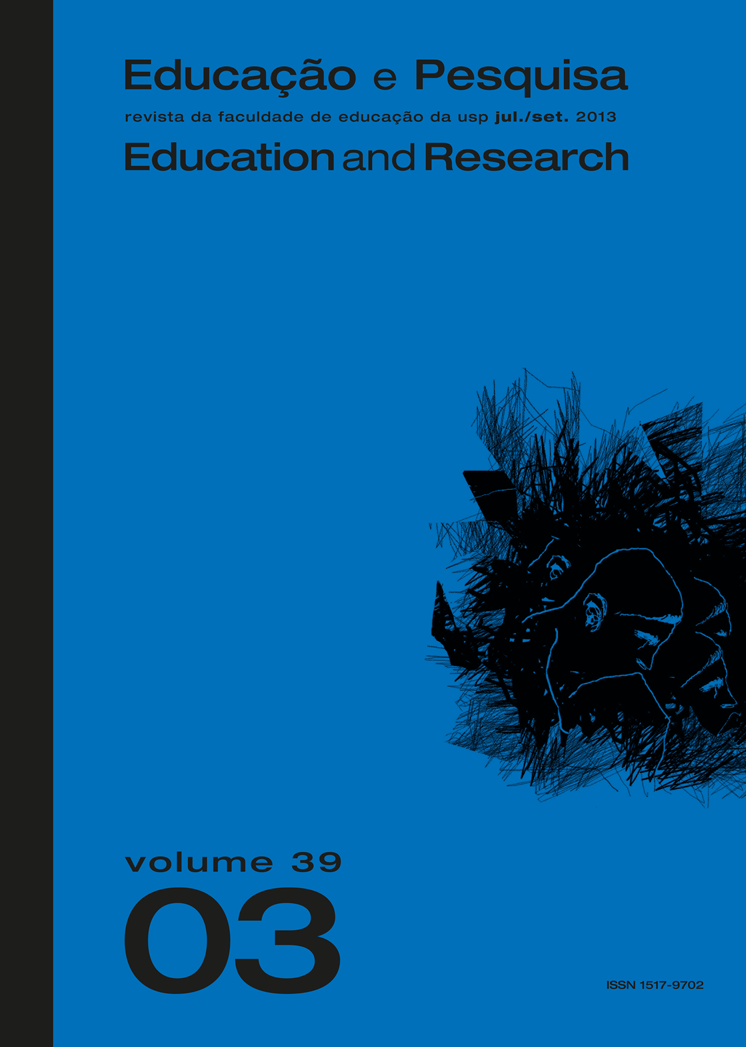Bilingual education in the United States: possible moral transition toward global citizenship
DOI:
https://doi.org/10.1590/S1517-97022013005000016Keywords:
Bilingual education, English-only movements, Moral monism, Moral pluralism, Global citizenshipAbstract
This theoretical study investigates the importance of cross-cultural competencies, such as communicative skills, for the development of education that enables global citizenship. The study's hypothesis is the suggestion that arguments against bilingual education in the United States may represent evidence of a transition from a conservative approach to citizenship to a global citizenship. Thus, through critical analysis of the literature, a theoretical reflection is constructed about the moral aspects of arguments against bilingual education and for English-only education, including the implications for global citizenship. Arguments for English-only education and against bilingual education may reinforce the need for educational reform based on both Adela Cortina's theory of minimum ethics (2005), and Makoni and Pennycook's (2007) proposition of the disinvention and reconstitution of languages. In conclusion, the critical analysis of arguments against bilingual education and for English-only movements seems to reinforce the proposal that the United States may be experiencing a transitional period from moral monism to moral pluralism, at the same time that moral pluralism might be prerequisite for global citizenship.Downloads
Download data is not yet available.
Downloads
Published
2013-09-01
Issue
Section
Articles
License
Authors assume exclusive responsibility for the concepts expressed in their articles, which do not necessarily reflect the journal’s opinion.
Permission to photocopy all or part of the material published in the journal is granted provided that the original source of publication be assigned.
How to Cite
Bilingual education in the United States: possible moral transition toward global citizenship. (2013). Educação E Pesquisa, 39(3), 673-688. https://doi.org/10.1590/S1517-97022013005000016



